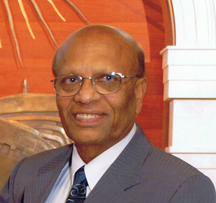This extraordinary book “An Ahimsa in Crisis: You Decide” offers an opportunity for education and critical reflection by Jains and all who seek to realize nonviolent conditions from individual to global life. It is a model for self-critical inquiry within every other peace-seeking faith, philosophy, and practice.
The author’s self-revelatory introduction is reminiscent of the Confessions of St. Augustine and Jean-Jacques Rousseau, and A Confession by Leo Tolstoy. Being neither monk nor academic scholar, but an engineering-trained Jain leader, his exposition of Jain Ahimsa ideals and critique of practices grows out of 50 years of cross-cultural experience bridging India and America. It will encourage self-reflection by readers in every vocation.
For non-Jains this book will introduce Jain thought and practices related to Ahimsa (nonviolence in thought, word and deed). As the world’s most comprehensive nonviolent religion, distinctive but closely related to Buddhism, Jainism seeks non-injury to all forms of sentient life (humans, animals, plants, and the life-supporting elements of the environment). While Jainism historically has not been a proselytizing faith within India or abroad, in view of pervasive global violence Sulekh Jain seeks to contribute to universal understanding of its nonviolent transforming potentials by introducing it in world universities, not only in departments of religion and philosophy but in other fields of education. To this end he and colleagues have founded the International School for Jain Studies (ISJS) that brings teachers and students to India. In this book readers will benefit from his skill as cross-cultural educator. One can envision it as a valuable text inviting discussion at all levels of formal and adult education as well as in Jain and other communities, media, and the peace policy-making world.
Sulekh Jain’s vision is that every human being can become an ahimsak (truly nonviolent person). He does not mean that everyone becomes a Jain but that universal values of nonviolence in thought, word and deed become practiced in everyday life. The book ends with passionate advocacy and empirical demonstration of the human and environmental benefits of a vegan diet as the mark of a “truly nonviolent person.” He humbly admits the difficulty of achieving this even among Jains for whom vegetarianism is a defining expected practice.
As a scholar still on a continuing journey from soldier, to academic political scientist, to awakening to nonviolence, and on to exploration of spiritual, scientific, and practical human capabilities to end killing of humans, I am greatly indebted to Jain teaching and encouragement. Also to demonstrations of historical and contemporary non-killing individual and social capabilities among Buddhists, Christians, Gandhians, Hindus, Kingians, Muslims, and secular humanists. Among Jains, teachers have been Acharya Tulsi and the Anuvrat Movement, Yuvacharya Mahapragya who surprised and shocked me on first meeting by saying “We’ll never get to nonviolence by religion alone” and stressed understanding of bioneurological factors. Swami Dharmananda taught me Preksha Meditation. Dr. S.L. Gandhi first introduced me to Jainism through the Anuvrat Global Organization. From first meeting in Honolulu Dr. Sulekh Jain has been an inspiring example of Jain leadership. Thus my gratitude and enthusiasm for this book’s educational and challenging introduction to Jain thought, problems of practice, and relevance for achieving global conditions of nonkilling Ahimsa. For from birth to natural death no human purpose can be pursued if one is killed.
Glenn D. Paige, Ph.D
Professor Emeritus, University of Hawaii, Honolulu
Center for Global Nonkilling
http://www.nonkilling.org
3653 Tantalus Drive
Honolulu, HI96822-5033USA
[email protected]
Tel. (+1) 808-536-7442
“Everyone can be A Center for Global Nonkilling”
“No More Killing!”
 Dr. Sulekh Chand Jain
Dr. Sulekh Chand Jain
